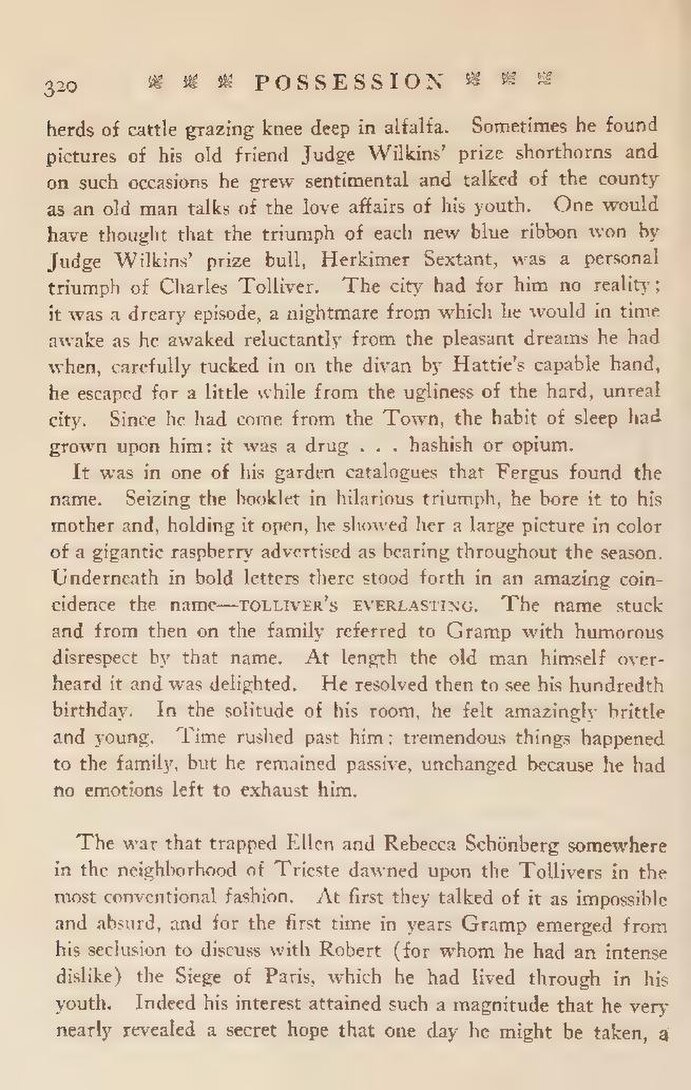herds of cattle grazing knee deep in alfalfa. Sometimes he found pictures of his old friend Judge Wilkins' prize shorthorns and on such occasions he grew sentimental and talked of the county as an old man talks of the love affairs of his youth. One would have thought that the triumph of each new blue ribbon won by Judge Wilkins' prize bull, Herkimer Sextant, was a personal triumph of Charles Tolliver. The city had for him no reality; it was a dreary episode, a nightmare from which he would in time awake as he awaked reluctantly from the pleasant dreams he had when, carefully tucked in on the divan by Hattie's capable hand, he escaped for a little while from the ugliness of the hard, unreal city. Since he had come from the Town, the habit of sleep had grown upon him: it was a drug . . . hashish or opium.
It was in one of his garden catalogues that Fergus found the name. Seizing the booklet in hilarious triumph, he bore it to his mother and, holding it open, he showed her a large picture in color of a gigantic raspberry advertised as bearing throughout the season. Underneath in bold letters there stood forth in an amazing coincidence the name—Tolliver's Everlasting. The name stuck and from then on the family referred to Gramp with humorous disrespect by that name. At length the old man himself overheard it and was delighted. He resolved then to see his hundredth birthday. In the solitude of his room, he felt amazingly brittle and young. Time rushed past him; tremendous things happened to the family, but he remained passive, unchanged because he had no emotions left to exhaust him.
The war that trapped Ellen and Rebecca Schönberg somewhere in the neighborhood of Trieste dawned upon the Tollivers in the most conventional fashion. At first they talked of it as impossible and absurd, and for the first time in years Gramp emerged from his seclusion to discuss with Robert (for whom he had an intense dislike) the Siege of Paris, which he had lived through in his youth. Indeed his interest attained such a magnitude that he very nearly revealed a secret hope that one day he might be taken, a
